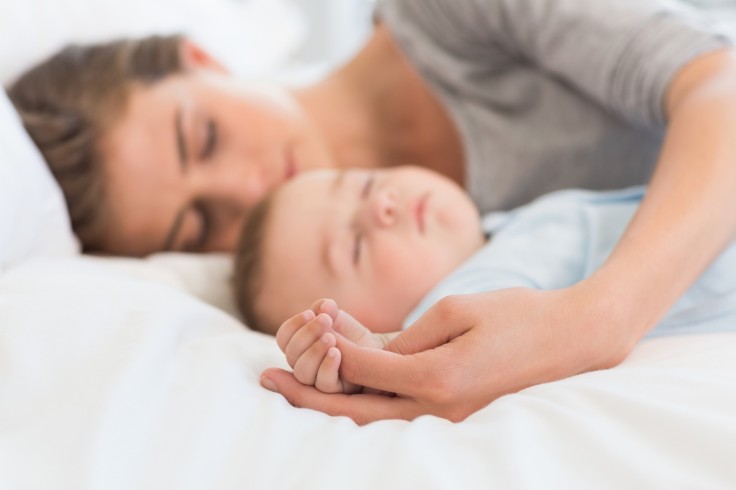
When you're pregnant, you may struggle to sleep because of the side effects and symptoms you experience, as well as the size of your growing belly. You likely try just about everything to get a good night's sleep when you're pregnant and you might think you'll get more rest when the baby comes.
Not likely-especially if you decide to co-sleep.
Co-sleeping has become a hotly debated topic, with some families who say it's the best way to bond with their children and others saying it's a danger and something no one should risk. So which is it?
The following explores some of the pros and cons of co-sleeping.
Is It Dangerous?
First and foremost, is co-sleeping dangerous? Typically with older kids who have reached at least toddler-age, there's really no inherent risk of co-sleeping, but that may not necessarily be the case with babies.
While it's a growing trend to co-sleep with infants, it's against the recommendations of the American Academy of Pediatrics. They describe it as something that should be avoided at all times with infants younger than four months.
According to the AAP, co-sleeping puts babies at risk for sleep-related deaths, including sudden infant death syndrome as well as suffocation and strangulation. It's reported that around 3,700 babies die annually from causes related to sleep.
However, not all doctors and clinicians agree with the recommendations of the AAP. Some feel that babies need contact with their parents' bodies.
What can sometimes be more dangerous than actual co-sleeping are the things that we put on our beds that we wouldn't put in a crib, such as mattress pads and down pillows along with massive comforters.
Additionally, a parent who drinks or uses drugs is advised against sleeping with their baby because they could accidentally roll over on their child.
Otherwise, you should speak with your pediatrician and learn more about what their guidance is for younger babies.
Some parents who want the benefits of co-sleeping with their baby without some of the risks might use a bassinet that goes beside their bed.
What about for toddlers and older kids when things like SIDs aren't a risk?
The Benefits of Co-Sleeping with Older Kids
There are some wonderful benefits that come with co-sleeping with older kids. For example, it can reduce your children's anxiety when they're close to you which may help them sleep better.
Younger children especially may wake up in the night and panic if they're alone, and that can prevent everyone from getting quality sleep. Sleeping near your child may avoid this situation. It can provide reassurance to a child.
If you're breastfeeding, co-sleeping is easier, and if you work during the day outside of the home, you may feel like sleeping with your child offers you the chance to bond.
The Cons of Co-Sleeping with Older Kids
While co-sleeping with toddlers can help them feel secure and safe, and also help everyone get more sleep, sharing a bed with kids who are older than five may lead to dependence. Kids then have a hard time ever making the transition to their own bed in some cases.
When your kids are bigger and more active in their sleep and taking up more space, if you're sharing a bed with them, it can be hard for you to get sleep. If you've ever been kicked in the face by a sleeping child, you know what a challenge it can be.
Co-sleeping may also create problems in your relationship with your spouse or partner.
Just as much as it's important for busy parents to bond with their children and spend time with them, the same can be true for each other.
So what does all this mean?
First, be honest with your pediatrician about your co-sleeping habits. Sometimes parents don't talk about it with doctors because they're afraid of judgment but your pediatrician may have helpful suggestions or ideas for you.
You will ultimately have to decide what's right for your family, and as long as you're doing so with safety in mind, it's up to you how you sleep.
You do need to consider your own needs as well as the needs of your partner, however, and sometimes when our kids take over our beds that's hard to do. Maybe you do some co-sleeping when your children are feeling particularly needy but then other times you encourage them to sleep in their own rooms. Some parents will also let their kids fall asleep with them and then move them to their beds.